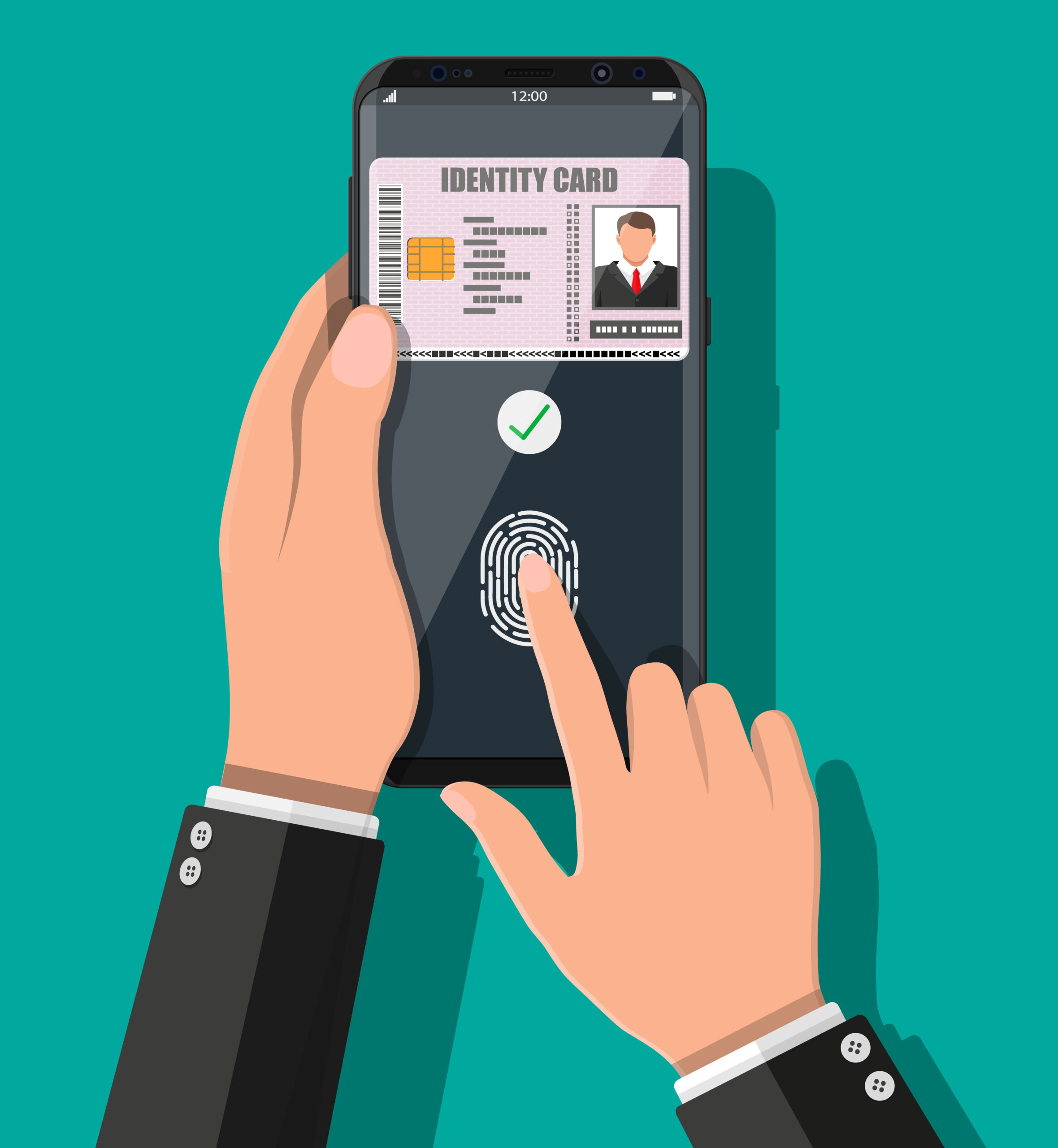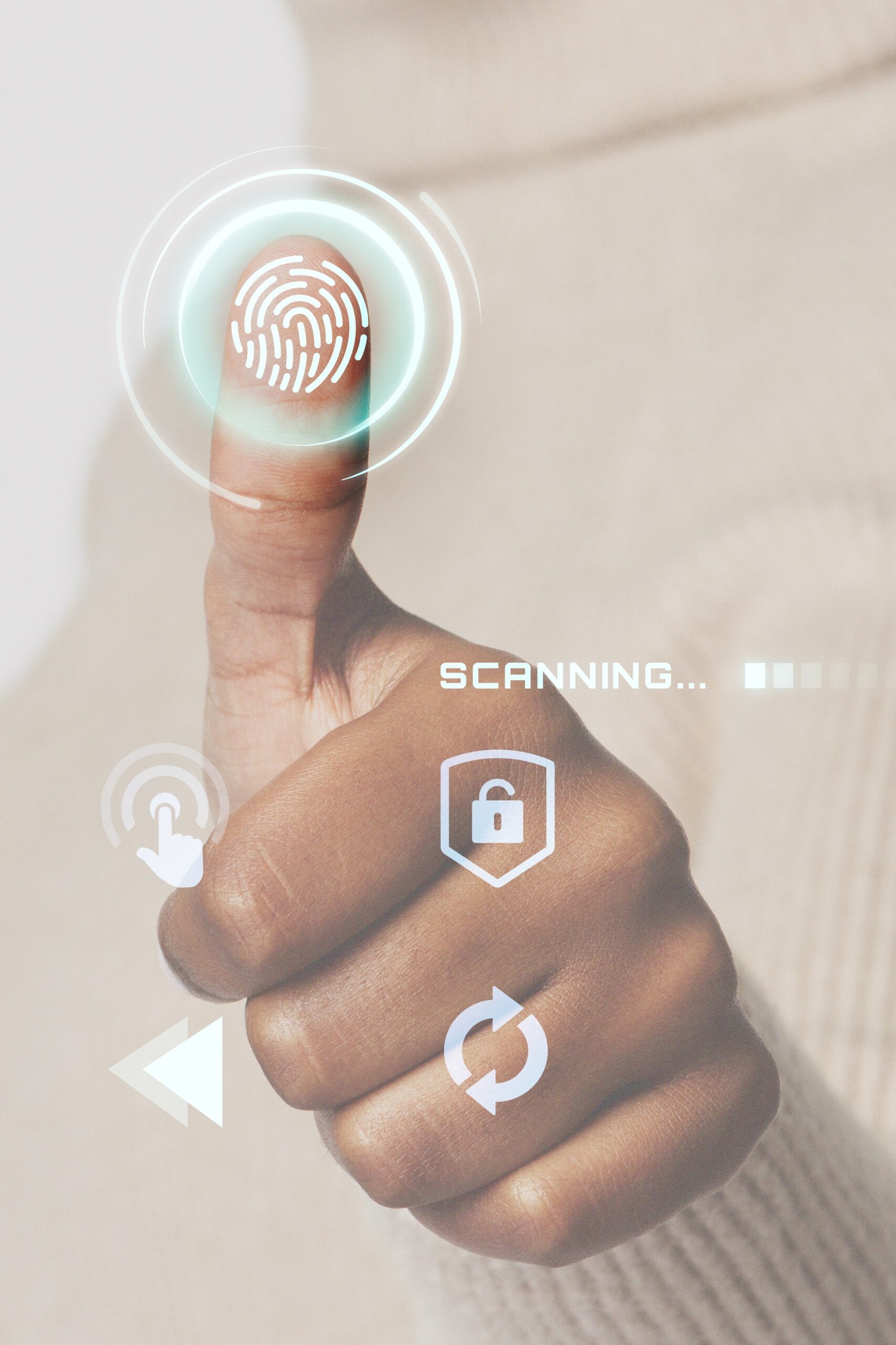ID Verification
Identity verification involves confirming the authenticity and validity of an individual’s identification documents. This process is widely used by companies, organizations, and service providers to validate the identity of their clients or users.
1. Purpose of ID Verification:
- Security and Fraud Prevention: Identity verification helps prevent identity theft, fraud, and unauthorized access to sensitive information or services.
- Compliance: Many industries, such as finance, healthcare, and online platforms, are required by law to verify the identities of their customers to comply with regulations such as Know Your Customer (KYC) and anti-money laundering requirements. money (AML).
- Trust and security: Verifying customer identities builds trust, ensures businesses are interacting with genuine people, and reduces the risk of phishing or fraudulent activities.

2. Types of ID Documents:
- Government-issued IDs: Common documents include passports, driver’s licenses, national ID cards, or military IDs.
- Additional Documents: Depending on requirements and jurisdiction, supplemental documents such as utility bills, bank statements, or birth certificates may be used for additional verification.
3. ID Verification Methods:
- Document scanning: Technology scans and extracts information from identification documents using tools such as optical character recognition (OCR) to verify data.
- Biometric verification: Involves the use of biometric methods such as fingerprints or facial recognition to match physical characteristics with the identity document.
- Knowledge-based authentication: This method asks security questions or requests additional personal information to verify an individual’s identity.
4. Compliance and Legal Considerations:
- Data protection: Compliance with data protection laws and regulations is essential to protect the privacy and confidentiality of personal information obtained during identity verification.
- Retention period: Establishing an appropriate retention period for verified identification data balances legal requirements and business needs.
- Consent: Appropriate consent must be obtained from individuals before collecting and using their identifying information, and the purpose and scope of the verification process must be communicated.
5. Handling of ID Information:
- Security Measures: Implement strong security measures, such as encryption and secure storage practices, to protect the storage, transmission, and access of identifying information.
- Data Privacy: Establish policies and procedures to handle identifying information securely and by applicable privacy laws.
- Data Sharing: Ensure that identifying information is shared only with authorized parties and for legitimate purposes, complying with confidentiality and data protection requirements.

ID Verification: Improving Trust and Security
In today’s digital world, ensuring the reliability of people is essential for companies and organizations. Identity verification plays a crucial role in building trust, preventing fraud, and protecting sensitive information.
1. Advanced technology for improved verification
- AI-powered solutions: Advanced technologies such as artificial intelligence (AI) provide more accurate and efficient identity verification processes by analyzing and comparing ID document data with databases to detect fraudulent or manipulated documents.
- Biometric Authentication: Biometric methods, such as fingerprint scanning or facial recognition, add an extra layer of security by matching physical characteristics to identification documents, making it difficult for imposters to bypass verification.
2. Remote verification and compatibility with mobile devices
- Mobile Verification: Mobile identity verification solutions allow people to verify their identities conveniently from their devices, allowing them to capture and send identity documents digitally through mobile applications.
- Remote Verification: Remote identity verification solutions employ video calls or live verification sessions to interact with people in real-time, verifying their identity remotely and ensuring compliance and security.
3. Compliance with regulations and industry standards
- KYC and AML Compliance: Identity verification is essential for businesses to comply with regulatory requirements such as Know Your Customer (KYC) and Anti-Money Laundering (AML) by verifying customer identities and detecting potential risks.
- Industry-specific standards: Different industries have specific regulatory frameworks. Customized identity verification solutions ensure compliance with industry-specific standards and enhance security measures accordingly.
4. Easy to use and smooth experience
- Streamlined processes: User-centric identity verification solutions prioritize simplicity and ease of use, making the verification process seamless and reducing friction.
- Real-time results: Efficient verification processes provide instant results, allowing users to carry out transactions or access services without delays, enabling quick decision-making while maintaining high accuracy.
5. Data privacy and security
- Secure data handling: Identity verification providers adhere to strict data security and privacy measures, ensuring encryption, secure storage, and strict access controls to protect sensitive personal information.
- Compliance with privacy laws: Identity verification processes must comply with privacy laws and regulations such as the General Data Protection Regulation (GDPR) and the California Consumer Privacy Act (CCPA), respecting the rights of people concerning their data.
6. Two-factor authentication (2FA) for enhanced security
- Incorporating 2FA into the identity verification process adds a layer of security. In addition to verifying the ID document, individuals provide a second form of authentication, such as a one-time password (OTP) sent to their registered mobile phone number or email address, preventing unauthorized access even with a valid identification document.
7. Blockchain technology for immutable records
- Leveraging blockchain technology in identity verification ensures immutable and tamper-proof records. Storing verification data in a distributed ledger establishes a reliable, auditable trail of identity verification transactions, improving transparency and trust.
8. Multilingual and global verification
- As businesses operate globally, multilingual identity verification solutions adapt to diverse populations, supporting multiple languages and verifying identity documents from different countries, accommodating people from diverse regions and backgrounds.
Frequently Asked Question (FAQs)
- Fraud Prevention: Identity verification helps prevent identity theft, fraud, and unauthorized access to confidential information or services, protecting both the company and its customers.
- Regulatory Compliance: Many industries, such as finance, healthcare, and online platforms, are required by law to verify the identity of their customers to comply with regulations such as KYC and AML.
- Trust and reputation: Verifying customer identities builds trust, ensures businesses are interacting with legitimate people and reduces the risk of phishing or fraudulent activity.
- Enhanced Security: Identity verification adds a layer of security, reducing the likelihood of unauthorized access or fraudulent transactions.
- Personalization and personalized services: By verifying customer identities, companies can provide personalized services, improving customer experience and satisfaction.
- Document Submission: People send scanned copies or clear photos of their ID documents through secure channels or mobile apps.
- Document validation: verification systems compare the information of the presented document with databases and verify its authenticity, manipulation, or discrepancies.
- Additional Controls: Companies can employ additional controls, such as biometric verification or knowledge-based authentication, to further validate an individual's identity.
- Decision and outcome: Based on the verification results, businesses determine whether the individual's identity has been successfully verified, allowing them to continue with the requested services or transactions.
The identity verification process prioritizes data security and privacy. Measures such as encryption, secure storage, access controls, and compliance with data protection laws ensure the confidentiality and integrity of verified identification information. Companies work diligently to protect sensitive personal data and adopt industry best practices to mitigate security risks.
The retention period for identity verification data depends on business policies, legal obligations, and industry regulations. Companies should have clear data retention and deletion policies to ensure compliance with relevant privacy laws and regulations.
Identity verification protects against identity theft by confirming the authenticity of identification documents. By comparing information in documents with databases and performing additional checks, companies can detect fraudulent or manipulated documents, preventing unauthorized access to services and protecting people's identities and confidential information.
